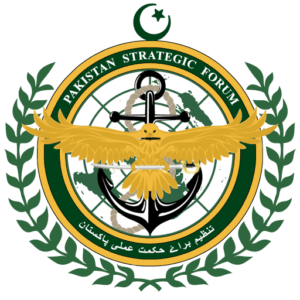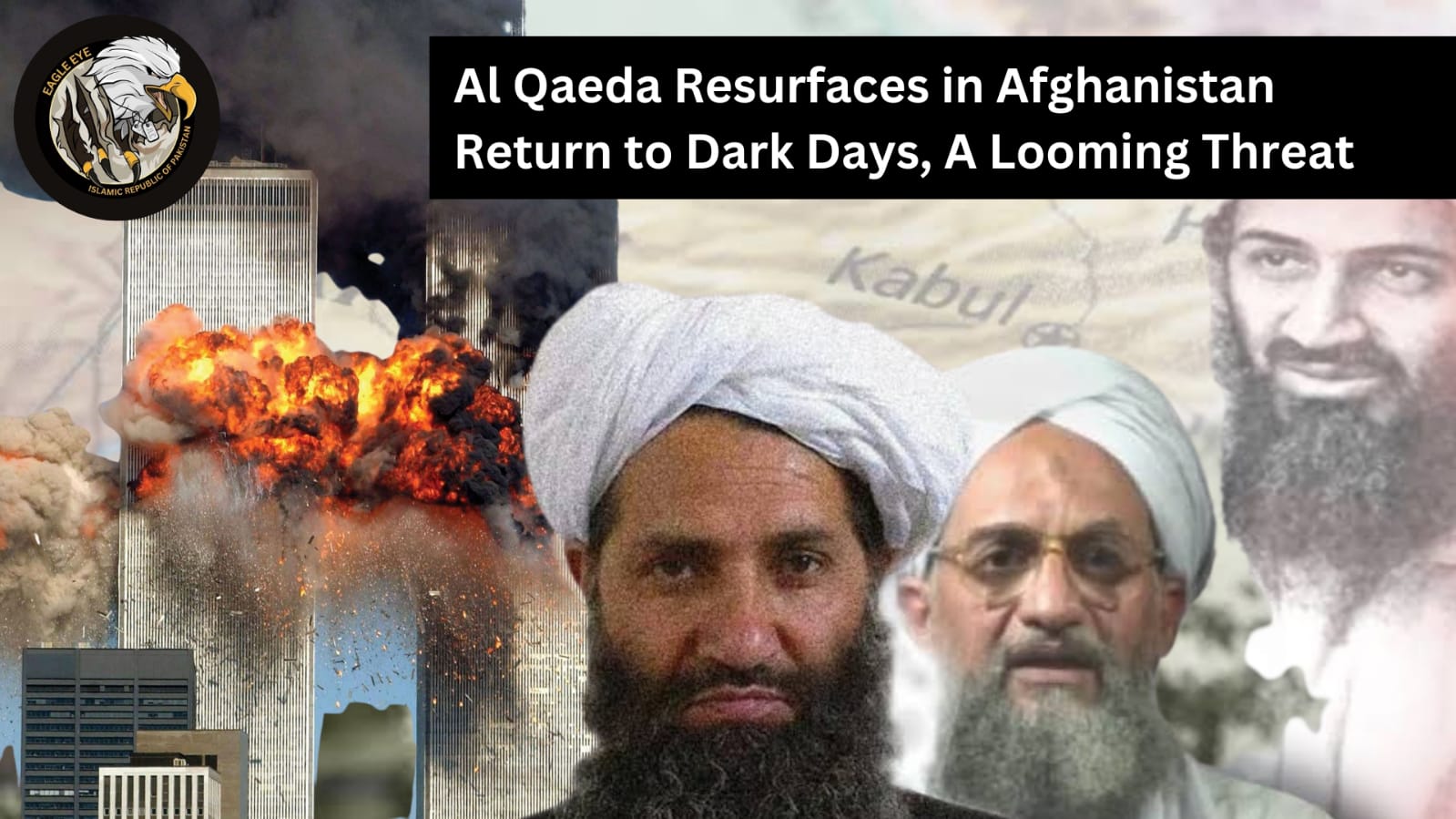This year shook the International system. Corona virus, an infectious disease identified in Wuhan, China at the end of year 2019 has turned into a full-scale global pandemic. The outbreak of COVID-19 pandemic is causing widespread loss of life and economic disruption. America, Australia, Europe, Africa, Asia all are wrestling with its enormity. More than half of the world closed their borders for arrivals from countries with infections, trade is closed, masses are in self-quarantine. It created a situation of health emergency across the globe. However, along with the health risk, the security risks are becoming more important. The government responded by placing the restriction on free movement of people and goods. The channels of information shifted to the digital domain and cyberspace. Across the world governments are heavily relying on data infrastructure. Economically, states are facing significant drop. The transportation of goods inside and across the border has stopped. The aviation industry stopped working, affecting the national economy. International trade operations have been suspended except transfer of medical necessities. People are losing their means of livelihood. All this situation has instilled fear in the mind and hearts of people, thus creating political and social instability in the country.
Role of Armed Forces
Pandemics transform history, institutions, and norms quickly. The ongoing pandemic attacks of corona virus across the globe have shown how an institutional role is changing. As soon as the virus spread across the countries, the major institutions of countries shaped themselves in different capacities and new secondary assigned duties. In this era of a global pandemic, armed forces around the world have come up with new strategies and tasks. As the defined primary task of armed forces is to defend the country and even go to full-scale war for the nation’s defense. However, this has changed in recent times as the world is facing a daunting task to tackle COVID-19. This virus has hit every country and there are more than 7 million cases reported. Many countries have called upon their armed forces to assist in a new kind of war- COVID-19 pandemic. From dictatorship to strong democracies, all are enlisting armed forces to assist in this universal emergency. Although it seems an obvious measure, the military contribution in this global pandemic is worth evaluating.
Militaries helping their Governments
Military institutions have primary responsibility of ensuring adequate security with respect to border control, protection of resources, ensuring law and order as a preventive measure in recent situations. As non-traditional security threats sometimes change the geopolitical realities and bring forth the plethora of traditional threats. Militaries always have this responsibility to make sure no foreign element takes advantage of the situation.
However, Militaries across the world are adapting to new realities as well. They are adapting to carry out secondary roles by reaching out to their citizens to reinforce national efforts to contain the spread of novel corona virus. The active role of militaries defines their key capabilities useful during any crisis. At their most fundamental level, armed forces have a significant number of disciplined manpower with a vast array of skills such as crisis planning, deployment at short notice, etc. Militaries have their key assets in hand which can be helpful like field hospitals, air ambulances, etc. Their highly trained and experienced medical staff can be easily made available for assistance. The most significant task which any armed force can efficiently perform is the logistic support. The transport of necessary equipment like ventilators to the hospitals. The military communication setup can help set command and control centers for the smooth flow of information among various institutions. Finally, armed forces are helping civilian institutions to maintain law and order in the country.
Role of Pakistan Armed Forces
Like every developing and developed country, Pakistan too has called upon armed forces to assist civilian administration facing the daunting challenge of corona virus. To this date, the country has confirmed cases over 141,000 and more than 2000 deaths. The timely decision for a cessation of business activities and clam down brought better results in tackling a pandemic. However, for countries like Pakistan with a weak economy, it is a hard decision to keep lock down active. The major chunk of the population lived on daily wages and cutting their source of income creates unrest in the country’s social order.
Meanwhile, Armed forces and other paramilitary forces are on the ground to assist the civil administration in restricting the movement of masses. The military troops are present in all provinces of the country to ensure public health security. Besides this, the military hospitals are providing the necessary medical facilities, and the men in uniform are assisting the civil administration in the distribution of ration, maintaining law and order, etc. In the meantime, the National Command and Control Centre (NCOC)has been established to coordinate all activities related to Covid-19. The NCOC is filling in as a core for one window operation to synergize and articulate national efforts against COVID-19. Commander Army Air Defense Command Lieutenant General Hamooduz Zaman Khan has been assigned as Chief coordinator NCOC who will work along civilian leadership to ensure smooth functioning. Likewise, amid COVID-19 another threat is putting alarms. The locust attacks on crops across the country is creating a new threat. This food security threat is more threatening for a country like Pakistan which is mostly agricultural and depends on. The military once again has been helpful as helicopters are used for aerial spray.
Moreover, Pakistan Navy has set up its response to help the backward area of the country. It has reached out to residents of coastal areas, particularly in Sindh and Baluchistan province. Naval teams distributed food, cash amount, medical safety items like masks, sanitizers, and gloves. In addition to this, naval medical camps are being set up in far-flung areas to help civilians in necessary treatment and awareness about preventive measures against COVID-19.
In all such measures, the proactive role of PAF is commendable. It has remained on the front foot before the virus stepped into the country. Its C-130s provided 17 tonnes of food and other necessary supplies to stranded Pakistani students in virus epicenter Wuhan, China. The same aircraft returned with medical aid from China. PAF IL-78 jet brought 14 tons of massive assistance from friendly country China. It included 20,000 N-95 masks, 0.3 million medical face masks, 10 ICU ventilators, and five portable ventilators. Furthermore, on the request of PIA’s CEO, PAF provided a C-130 transport plane to carry PIA pilots who volunteered to fly sorties bringing back stranded Pakistanis from abroad. On the instructions of the Government of Pakistan PAF Plane carried out relief missions carrying Zaireen to their home Gilgit-Baltistan. The PAF’s Air Transport fleet is actively involved in carrying out relief efforts in the wake of COVID-19 pandemic.
It is admirable how armed forces have ascended help to civil administration. Nevertheless, certain configurations need to be already made. As history shows that many soldiers died because of disease than battle wounds. In military parlance, diseases are known as the third army in a war. In this different nature of war, the personnel are still prone to infection. The increasing challenge of this virus affects the organizational work of forces. Their nature, barrack residence, training, and modus operandi make them vulnerable to such deadly infections. Already many cases have come up in major military forces like the US, where US aircraft carrier Theodore Roosevelt has highlighted the risk of virus spread among crew. In France, more personnel have contracted the virus, crew members of its aircraft carrier Charles de Gaulle contracted the virus. Looking at the numbers, there are chances that such cases can be seen in Pakistan armed forces which is quite alarming. The patrolling troops, flying pilots are more prone to such infection. Therefore, civil, and military leadership must concoct a strategy to keep personnel safe during this pandemic.
Author: Syed Ali Abbas
About Author: Syed Ali Abbas has graduated in International Relations from NUML, Islamabad, and studies Chinese Politics at Hong Kong University of Science and Technology. Previously, Syed worked with Global Village Space magazine and as research internee at Center for Global and Strategic Studies, Islamabad.
Edited By: Talha Ahmad (Editor in Chief PSF)
Note: The views expressed in this article are the author’s own and do not necessarily reflect the editorial policy of Pakistan Strategic Forum.
#TeamPakistanStrategicForum







Nice work dear . Keep it up